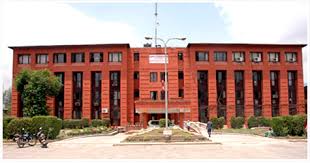Health ministry alerts agencies to risk of Nipah virus outbreak

Kathmandu / July 25: The Epidemiology and Disease Control Division has alerted all agencies concerned to the risk of a Nipah virus outbreak in Nepal, as neighbouring India recently reported a death from the deadly disease.
Officials said they have purchased reagents to test the virus and laboratory technicians have been trained to test samples of suspected cases.
“We are aware of the Nipah virus outbreak in India and the deaths,” said Dr Hemanta Chandra Ojha, chief of the Zoonotic and Other Communicable Disease Control Section. “We are closely monitoring the development and have alerted our relevant agencies to the looming risk.”
India has reported an outbreak of the Nipah virus in the state of Kerala and the death of a 14-year-old boy from the infection on Sunday. An additional 60 people who came in close contact with the deceased have been identified as a high-risk group by local health authorities, according to media reports.
This is the fifth outbreak of Nipah virus in Kerala since 2018, according to media reports. Last year too, health authorities in India confirmed at least two deaths and three other cases of the viral infection, including a child, in the southern Indian state.
Nipah is a zoonotic virus, transmitted from animals to humans, and causes a lethal swelling of the brain in humans. Transmission generally occurs when people come in close contact with infected animals or through the consumption of the meat of infected animals, according to doctors.
The World Health Organisation has classified the Nipah virus as a priority pathogen due to its potential to trigger an epidemic.
Transmission generally occurs when people come in direct contact with infected animals—pigs, fruit bats or through consumption of contaminated foods and meat of infected animals, according to health officials.
Doctors say cases of human-to-human transmission of the virus have also been reported in many places, including in India, among the families and caregivers of the infected people.
Health officials said no treatment for the Nipah virus is available. Without a vaccine having been developed, health workers provide symptomatic treatments only.
“We have alerted all our sentinel sites across the country to the risks,” said Ojha. “Health workers are requested to send samples of the suspects for lab testing.”
Doctors say Nepal is at risk of an outbreak of the Nipah virus, as fruit bats, which are the primary hosts of the virus, might also be present there.
The Nipah virus was first detected in 1999 after farmers and others who came in close contact with infected pigs in Malaysia and Singapore developed severe respiratory problems and inflammation in the brain.
According to the US Centers for Disease Control and Prevention, nearly 300 people were diagnosed with the disease then, and more than 100 of them died.
Experts said that authorities should take the issue seriously as the virus is far deadlier than the coronavirus, with up to 75 percent death rate in humans.
“The virus is much more infectious and deadlier than other respiratory viruses currently in circulation,” Dr Sher Bahadur Pun, chief of the Clinical Research Unit at the Sukraraj Tropical and Infectious Disease Hospital, told the Post. “Even if the primary hosts of the virus are fruit bats and pigs, this virus is transmitted from human to human through secretion and excretion. The authorities must step up surveillance.”
Doctors say that fruit bats from India, which carry the Nipah virus, can easily enter Nepal due to the proximity and similar environments. Moreover, due to the free movement of people between the two countries, there is always a high chance of any disease seen in India entering Nepal.
The incubation period of Nipah infection is 4 to 14 days, and its symptoms include fever, headache, convulsions, and respiratory and neurological problems.
The World Health Organisation said that although the virus has caused only a few known outbreaks in Asia, it infects a wide range of animals and causes severe disease and death in people, making it a public health concern.
